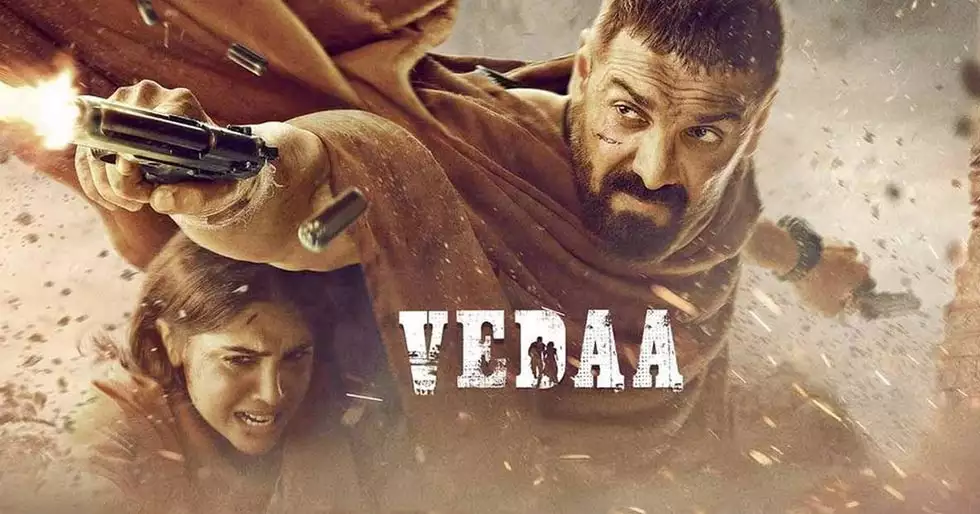The movie centres on Vedaa, a younger lady who has endured the horrors of honour killings firsthand, together with the brutal homicide of her brother by the village Pradhan, Jitendra Pratap Singh (Abhishek Banerjee). Singh’s cruelty extends to killing a woman from his household for eloping with a lower-caste boy. Regardless of her aspirations to develop into a boxer, Vedaa faces discouragement from her group. Recognizing her potential, Abhimanyu takes it upon himself to coach her, an act that doesn’t sit properly with the native male boxers. The director may have continued this story arc, with Vedaa changing into a nationwide degree boxer however he chooses to disregard the Million Greenback Child route, concentrating on making a strong motion movie, replete with flying bullets, flying automobiles and a damsel in misery rescued by a white knight.
Whereas John Abraham’s bodily presence provides authenticity to his position, his portrayal of Abhimanyu feels incomplete. His entry into the story is subdued, mourning the lack of his spouse (performed by Tamannaah Bhatia) and searching for vengeance. Though Abhimanyu’s help helps Vedaa acquire confidence, the movie’s climax betrays its foundational themes. The courtroom setting turns into the battleground the place justice is sought, however Abhimanyu’s intervention—utilizing a gavel as a weapon—turns the metaphorical into the literal, and the narrative’s rigidity dissipates. The decision is especially absurd. After all of the build-up of Vedaa’s battle and her quest for justice, it’s an upper-caste man who finally handles the climactic confrontation, together with killing the primary villain contained in the court docket. This not solely diminishes Vedaa’s journey however renders the complete battle for justice seemingly superfluous.
Abhishek Banerjee’s portrayal of the antagonistic Pradhan is a spotlight, capturing the essence of passive aggression and sustaining a menacing presence. Ashish Vidyarthi, because the patriarch, delivers a strong efficiency, including depth to the movie’s central battle. Sharvari Wagh goes from being a naive college lady to being a battle-scarred lady who lastly gathers the braveness to face up for herself. Her expressions, particularly in parts the place her caste id undermines her, are on level. John Abraham performs the robust, silent brooding warrior with consummate ease. He’s enjoying to his power and the position fits him to a T.
In conclusion, whereas Vedaa demonstrates admirable effort and intent, it falters by relegating its central message to the periphery. We predict the movie may present Vedaa taking the wrong-doers to court docket and thus paving the way in which for others to observe however the gory climax lessens the affect. The movie works nice as an hardcore motion flick however its social message will get submerged beneath all of the noise. That mentioned, filmmaker Nikkhil Advani has bravely proven how Dalits, even after 78 years of India’s Independence, are nonetheless handled in our society, particularly in rural pockets and kudos to him for that.


